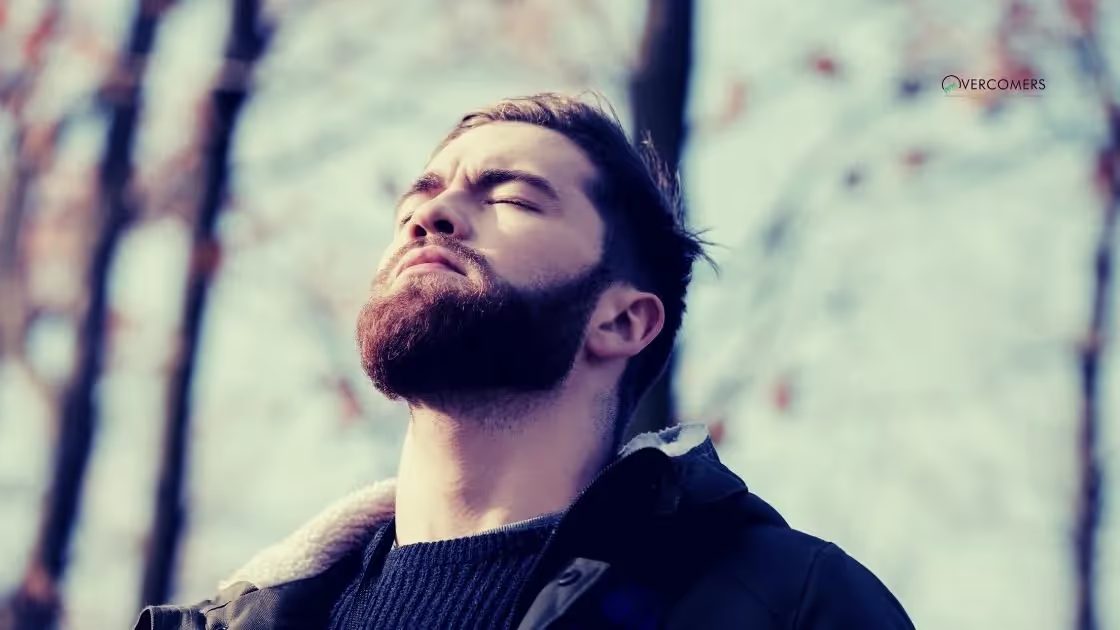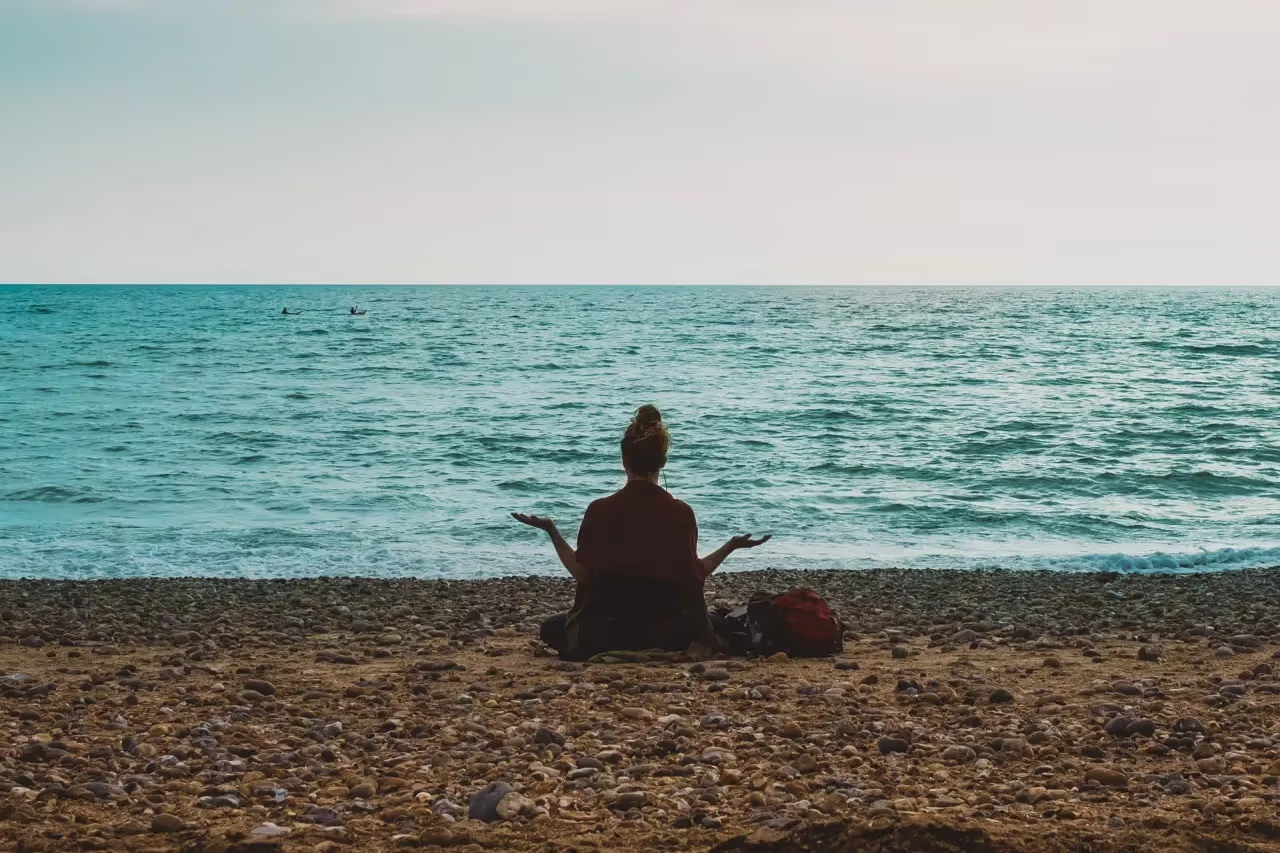What if I said, you never have to feel anxious again? Sound too good to be true? In fact, the truth is even better; you can become mentally tough!On the...

What if I said, you never have to feel anxious again? Sound too good to be true? In fact, the truth is even better; you can become mentally tough!
On the surface, this doesn't sound better than never dealing with anxiety again, but I promise it is.
Once you learn how to approach anxiety, and how to use it to motivate you instead of hold you back, there is no limit to what you can achieve.
To quote the famous existential philosopher, Soren Kierkegaard, "to venture causes anxiety, but not to venture is to lose one's self."
Anxiety is inherent in the human experience, and if the alternative to facing it is truly losing yourself then by Zeus, it's time to get mentally tough and master anxiety.
There's that Kierkegaard again- if you couldn't tell he sort of made a name for himself by exploring anxiety nearly 200 years ago.
Kierkegaard (like all the major Existentialists- Neitzsche, Sartre, Camu, Heidegger, and many more) came to the startling conclusion that anxiety is a uniquely human experience.
Unlike fear, which all animals feel, anxiety can only be experienced by those who are able to know they are alive, can reflect on the fact they're alive and can think about the future.
Quite a unique combination of pre-requisites there, but why does that create anxiety? Because if you are aware that you are alive and can plan for the future, that means there are all sorts of scary things that have to be planned for, around, and in case of (i.e. anything that is potentially threatening to your existence)!
When you break it down like that it's no wonder Kierkegaard said anxiety is dizziness; but, it's not just dizziness, it's the dizziness of Freedom.
We are blessed in this current age of technological advances to have more options at our fingertips than ever before- more career fields, more educational opportunities, more information...
However, with that freedom comes the requirement to eventually choose, to narrow down from a near-infinite number of options to just one- and what if it's the wrong one? Insert anxiety here.
This part is simple, probably the simplest part of anxiety- how do you make the right choice? You don't. You can't.
Because the "right choice" doesn't exist- you would have to have access to all future outcomes over every possible choice in order to make the "right choice."
So as it stands, here is the problem- Anxiety is the fear of making the wrong choice because that would threaten our existence (on some level anyway) and we are incapable of ever knowing what the right choice is.
Sounds like being between a rock and a hard place.
But, here's the kicker, if any choice you make could be the wrong one, then they could all be the right one as well, AND if you let go of the fear of making the wrong choice, then any choice you make no longer carries that existential anxiety with it.
What we've learned so far: 1) Anxiety is intimately tied to being alive, 2) Anxiety is the dizziness of being free to choose from an almost infinite number of possibilities & those possibilities come inherent with threats to our existence, and 3) Knowing that you won't be able to make the "right choice" alleviates the pressure and threat that comes with the fear of making the "wrong choice."
You may have noticed there's still a large issue at hand, even if you can't make the "right choice" that doesn't solve the problem of still having to make a choice and living with the consequences.
This is where becoming mentally tough begins.
The decision itself is less important than the process of making the decision- if you can look back and feel proud of the steps you took in making the choice then the outcome is irrelevant.
The best way to develop your decision-making process is to always start with what your personal values and morals are.

Nobody can tell you what is important to you.
The discovery of qualities, virtues, or morals that are worth following and pursuing is a personal endeavor and the beginning of becoming mentally tough.
How do you start? Google is your friend.
Look up a list of virtues or character traits; find movie, book, and TV characters that resonate with you and ask yourself what it is about them that you're drawn to?
Once you have the list going, live out those characteristics! Keep them on index cards, or as a note on your phone; set reminders on your calendar, whatever it takes to keep those values on your mind.
The more those traits are present in your mind the more you'll begin acting in a way that aligns with those values AND the more you'll find yourself making decisions based on those values.
Wherever anxiety rears its intimidating head, you'll be equipped with the conviction of your values to face that anxiety head-on.
In conclusion, anxiety is an unavoidable part of life, but the more willing you are to face what makes you anxious the more mentally tough you'll become.
A lot of anxiety stems from having to make singular choices in a world with near-infinite options, and every choice has potentially threatening consequences.
But, you can begin making solid choices for yourself about your life by identifying what things you truly value, and basing your decision-making process on the things that actually matter to you.
It's not about becoming less afraid, it's about becoming braver; it's about becoming mentally tough to master anxiety.
To reduce your anxiety, you can practice relaxation techniques such as deep breathing, progressive muscle relaxation, guided imagery, and mindfulness practices. Additionally, regular exercise has been found to be beneficial in managing stress and improving mental health.
Addressing anxiety is crucial because it can significantly impact your quality of life and overall well-being. Left untreated, anxiety can lead to more severe mental health issues, relationship problems, and difficulty functioning in daily life.
Other activities which have been found helpful in reducing both immediate feelings of anxiousness and long-term anxieties associated with chronic disorders include yoga, journaling, nature walks, art therapy, volunteering, and other low-stress activities. Additionally, developing a healthy lifestyle incorporating adequate sleep, physical activity, and nutritious meals can help reduce overall stress levels.
The duration of anxiety counseling varies for each individual, depending on the severity of their anxiety and their progress in therapy. Our therapists will regularly assess your progress and adjust your treatment plan as needed.
Ignoring anxiety can exacerbate symptoms and make it more challenging to manage over time. This can result in a negative impact on your personal, professional, and social life, leading to feelings of isolation and even depression.
Yes, Medicaid provides insurance coverage for therapy services specifically designed to help individuals struggling with anxiety, depression, and other mental health conditions.